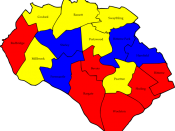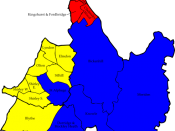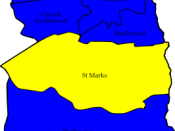In the British polity, the two main political parties have historically represented a social class. 'Class is the basis of British party politics; all else is embellishment and detail' (Pulzer, 1967). Labour were seen as the party of the working class, whilst the Conservative party were seen to represent the middle class. There has been a great deal of speculation as to whether this still holds to be true with increasing numbers of the electorate becoming 'class defectors'. Primacy approaches advocating social class to be one of the most fundamental factors in voting behaviour have come into conflict with advocates of the recency approach which places a greater weight on public perception of the party, as well as recent events in determining which way the electorate will vote. I will explore the various influences on voting behaviour in Britain to discover whether social class is indeed as powerful in influencing the voting habits of social classes in the British system as it was 50 years ago.
Historically the British political system was 'aligned', this meant that people from as particular social class would generally vote for the party that traditionally represented it. The Labour were traditionally seen as the party of the working class, due to their strong links to the Trade Union movement and their social democratic view of the redistribution of wealth through a strong and efficient Welfare State. However electoral support for the Labour party was not solely from the working class, over one fifth of the middle class also voted Labour. It is these individuals that made up the Labour party leadership, but why did they vote against the norm? The main reason was ideological, the middle class defectors were socialists, and the social democratic Labour party was the closest thing in the Britain to representing...


